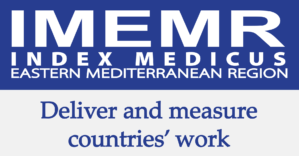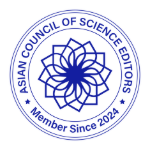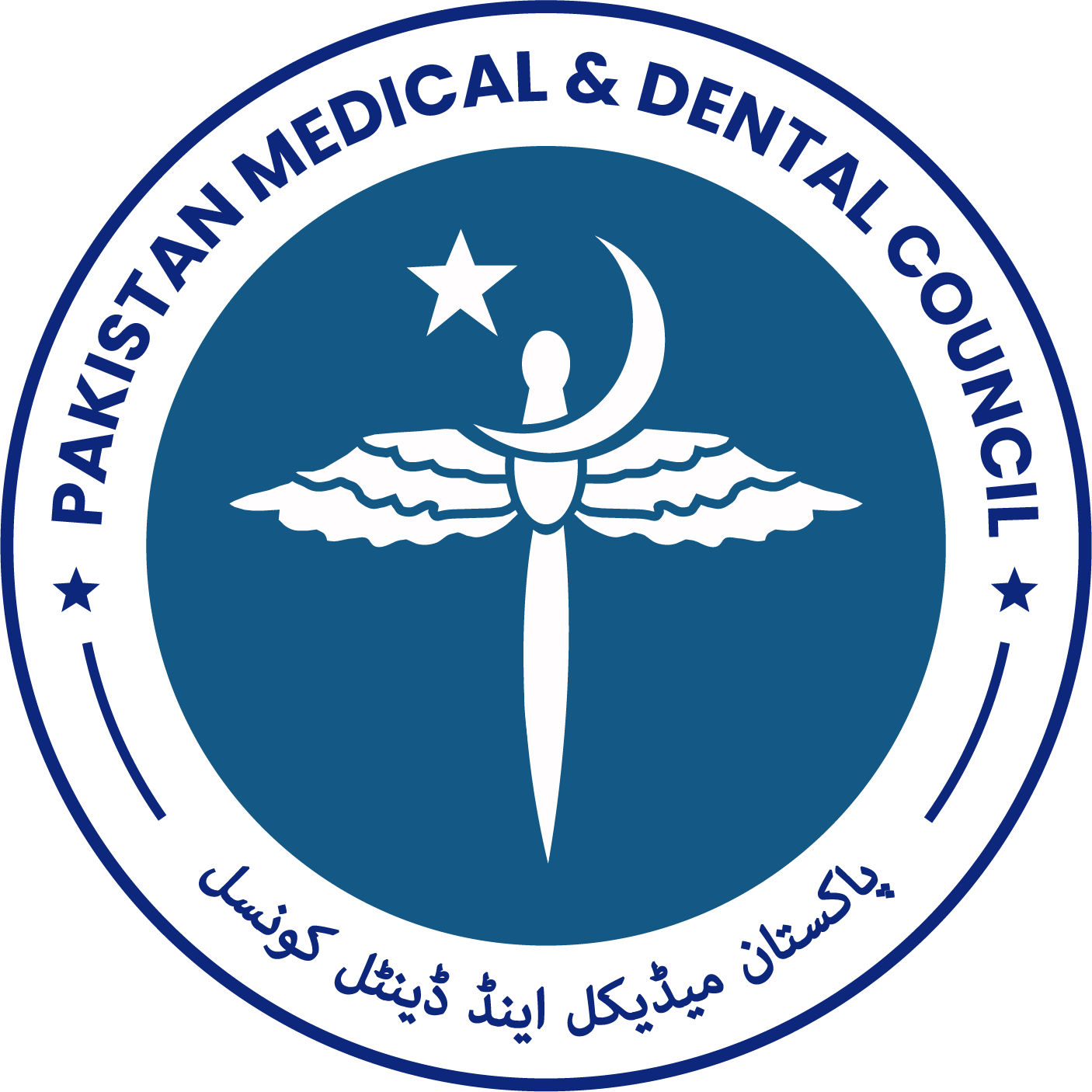Quality of life of mothers having children with Down syndrome
DOI:
https://doi.org/10.53685/jshmdc.v6i1.289Keywords:
Down Syndrome, Quality of Life, MothersAbstract
Background: A mother's Quality of life (QoL) is essential not only for her own well-being but also for providing better care to her child.
Objective: To assess the QoL of mothers having children with Down syndrome.
Methods: A cross-sectional analytical study was conducted in ten special needs schools catering to intellectual disabilities from September 2023 to March 2024 after Institutional ethical approval (IRB Ref letter # M-22/82/-CM). The study population was mothers of children with Down syndrome. A sample size of 37 was calculated on the WHO sample size calculator, doubled to 74, and the questionnaire was administered to 100 mothers. We included mothers of children diagnosed with DS, willing biological mothers who have one child with Down syndrome, and all other normal children. Whereas, single mothers, mothers having a child with Down syndrome who also suffered from another dual diagnosis, and mothers having another chronically sick or disabled child were excluded. A convenient sampling technique was applied. Data was collected using a standardized, validated WHOQOL-BREF instrument.
Results: The total QoL mean score for mothers was 84.45±14.33. Higher maternal education (p=0.007) and having a child older than 10 years (p<0.001) were significantly associated with increased mean QoL scores. Gender of the child and household income showed no statistically significant (p>0.05) associations.
Conclusion: Mothers with a higher education level, a child with Down syndrome of >10 years, and a better family socio-economic status had a higher quality of Life.
References
Shetty J, Shetty A, Mundkur SC, Dinesh TK, Pundir P. Economic burden on caregivers or parents with Down syndrome children-a systematic review protocol. Syst Rev. 2023; 12(1): 3. DOI: https://doi.org/10.1186/s13643-022-02165-2
Naz S, Ibrahim N, Sharif S, Bashir N, Sajjad E, Asghar I, et al. Prevalence and association of different levels of intellectual disability with prenatal, perinatal, neonatal and postnatal factors: Prevalence and association of levels of ID. Proc Pak Acad Sci.: B. 2021; 58(3): 75-82. DOI: https://doi.org/10.53560/PPASB(58-3)667
Yaqoob M, Manzoor J, Hyder SN, Sadiq M. Congenital heart disease and thyroid dysfunction in Down syndrome reported at Children Hospital, Lahore, Pakistan. Turk J Pediatr. 2019; 61(6): 915-924. DOI: https://doi.org/10.24953/turkjped.2019.06.013
Rasendrakumar A, Prabaharan K, Ramanan PV, Rasendrakumar N. Parents’ experience of receiving their child’s diagnosis of Down’s syndrome. Karnataka Pediatr J. 2021; 35(2): 110-114. DOI: https://doi.org/10.25259/KPJ_23_2020
Choi EK, Yoo IY. Resilience in families of children with Down syndrome in Korea. Int J Nurs Pract. 2015; 21(5): 532-541. DOI: https://doi.org/10.1111/ijn.12321
Dinc GS, Cop E, Tos T, Sari E, Senel S. Mothers of 0-3-old with Down syndrome: effects on quality of life. Pediatr Int. 2019; 61(9): 865-871. DOI: https://doi.org/10.1111/ped.13936
Marshak LE, Lasinsky EE, Williams C. Listening to fathers: personal impacts of raising children with Down syndrome. J Intellect Disabil. 2018; 23(3): 310-326. DOI: https://doi.org/10.1177/1744629518801112
Choi H, Van Riper M. Adaptation in families of children with Down syndrome in East Asian countries. An integrative interview. J of Adv Nurs. 2017; 73(8): 1792-1806. DOI: https://doi.org/10.1111/jan.13235
Geok CK, Abdullah KL, Kee LH. Quality of life among Malaysian mothers with a child with Down syndrome. Int J of Nurs Prac. 2013; 19(4): 381-389. DOI: https://doi.org/10.1111/ijn.12083
Haddad F, Bourke J, Wong K, Leonard H. An investigation of the determinants of quality of life in adolescents and young adults with Down syndrome. PLoS One. 2018; 13(6): e0197394. DOI: https://doi.org/10.1371/journal.pone.0197394
Sheikh MH, Ashraf S, Imran N, Hussain S, Azeem MW. Psychiatric morbidity, perceived stress and ways of coping among parents of children with intellectual disabilities in Lahore, Pakistan. Cureus. 2018; 10(2): e2200. DOI: https://doi.org/10.7759/cureus.2200
Anjali KG, Jose TT, Valsaraj BP, Nayak AK, Savitha, Yashodharan R. Quality of life of mothers having intellectually disabled children. Manipal J of Nurs and Health Sci. 2017; 3(2): 67-72.
Vadakedom SS, Antony JM, Padma BK, et al. Quality of life of mothers of children with Down syndrome. J Evolution Med Dent. Sci. 2017; 6(36): 2939-2942, DOI: https://doi.org/10.14260/Jemds/2017/633
Boehm TL, Carter EW, Taylor JL. Family quality of life during the transition to adulthood for individuals with intellectual disability and/ or autism spectrum disorder. Am J on Intellec and Dev Disabil. 2015; 120(5): 395-411. DOI: https://doi.org/10.1352/1944-7558-120.5.395
The World Health Organization Quality of Life Assessment (WHOQOL): development and general psychometric properties. Soc Sci Med. 1998; 46(12): 1569-1585. DOI: https://doi.org/10.1016/S0277-9536(98)00009-4
Noroozi F, Farrar Z, Gharibi T, Gashmard R. Family self‐support in managing Down syndrome children: A qualitative study. Sci World J. 2024; 2024(1): 9992595. DOI: https://doi.org/10.1155/2024/9992595
Shahzad S. It’s time to make inclusivity and positive rehabilitation the basic right of children with Down syndrome: a Pakistani perspective. Proceedings. 2023; 37(3): 50-56. DOI: https://doi.org/10.47489/szmc.v37i3.401
Isa SNI, Ishak I, Ab Rahman A, Mohd Saat NZ, Che Din N, Lubis SH, et al. Quality of life among caregivers of children with special needs in Kelantan, Malaysia: the importance of psychosocial mediators. Malays J Med Sci. 2021; 28(2): 128-141. DOI: https://doi.org/10.21315/mjms2021.28.2.12
AlAhmari FS, Alageel AF, Aldosari MA, Bagha MY. The quality of life of parents of children with down syndrome in a tertiary care hospital: A qualitative research study at Saudi Arabia. Ann Med Surg (Lond). 2022; 5; 81: 104428. DOI: https://doi.org/10.1016/j.amsu.2022.104428
Lima-Rodríguez JS, de Medina-Moragas AJ, Fernández-Fernández MJ, Lima-Serrano M. Factors associated with quality of life in relatives of adults with serious mental illness: A systematic review. Community Ment Health J. 2022; 58(7): 1361-1380. DOI: https://doi.org/10.1007/s10597-022-00948-4
Alwhaibi RM, Zaidi U, Alzeiby I, Alhusaini A. Quality of life and socioeconomic status: A comparative study among mothers of children with and without disabilities in Saudi Arabia. Child Care Pract. 2020; 26(1): 62-80. DOI: https://doi.org/10.1080/13575279.2018.1512951
Chiracu A, Cosma GA, Stepan AR, Cosma MA, Corlaci I, Călugăru ED, et al. Psychological capital, quality of life, and well-being in mother caregivers of individuals with down syndrome. Front Psychol. 2023; 14: 1145104. DOI: https://doi.org/10.3389/fpsyg.2023.1145104
De Clercq LE, Prinzie P, Warreyn P, Soenens B, Dieleman LM, De Pauw SSW. Expressed emotion in families of children with and without autism spectrum disorder, cerebral palsy and down syndrome: relations with parenting stress and parenting behaviors. J Autism Dev Disord. 2022; 52(4): 1789-1806. DOI: https://doi.org/10.1007/s10803-021-05075-9
Downloads
Published
How to Cite
Issue
Section
License
Copyright (c) 2025 Saadia Shahzad, Iram Manzoor

This work is licensed under a Creative Commons Attribution-NonCommercial 4.0 International License.
You are free to:
- Share — copy and redistribute the material in any medium or format
- Adapt — remix, transform, and build upon the material
- The licensor cannot revoke these freedoms as long as you follow the license terms.
Under the following terms:
-
Attribution — You must give appropriate credit, provide a link to the license, and indicate if changes were made. You may do so in any reasonable manner, but not in any way that suggests the licensor endorses you or your use.
-
Non Commercial — You may not use the material for commercial purposes.
-
No additional restrictions — You may not apply legal terms or technological measures that legally restrict others from doing anything the license permits.





















